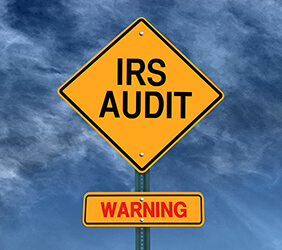How to Avoid IRS Scams
Most of us try to avoid run-ins with the Internal Revenue Service. We file our tax returns, pay our taxes and, generally, keep our noses down and accounts in good order to keep its representatives from knocking on our doors. There are various reasons why the IRS may try to reach to you but, if they do, you should be aware of how they will do it. With increasingly aggressive telephone scams occurring throughout the country, we want you to be aware that imposters may be trying to reach you or your relatives. So, what happens when the (real) IRS contacts you?
If the IRS is initiating contact with you, it will first send you a tax notice through the mail. The IRS does not call about tax debts owed without first having mailed a notice. It will not email, text or Facebook you to establish contact. In addition, it will not threaten you with arrest, request credit or debit card information over the phone or demand payment for outstanding tax liabilities without giving you time to respond.
The IRS has posted articles on its website and videos on YouTube covering this topic. In case you have not seen some of their most recent content, we are providing a couple links for you that further discuss these issues. If you’ve received a call and are unsure whether it was a legitimate attempt by the (real) Internal Revenue Service to reach you, please let us know and we’d be happy to assist you in making that determination.
- Scam Phone Calls Continue; IRS Identifies Five Easy Ways to Spot Suspicious Calls
- IRS Increase in Tax Scams Video
If you would like additional information or have questions regarding your individual or business tax needs, please contact Megan Kishman at mkishman@deandorton.com or 502-566-1070.








